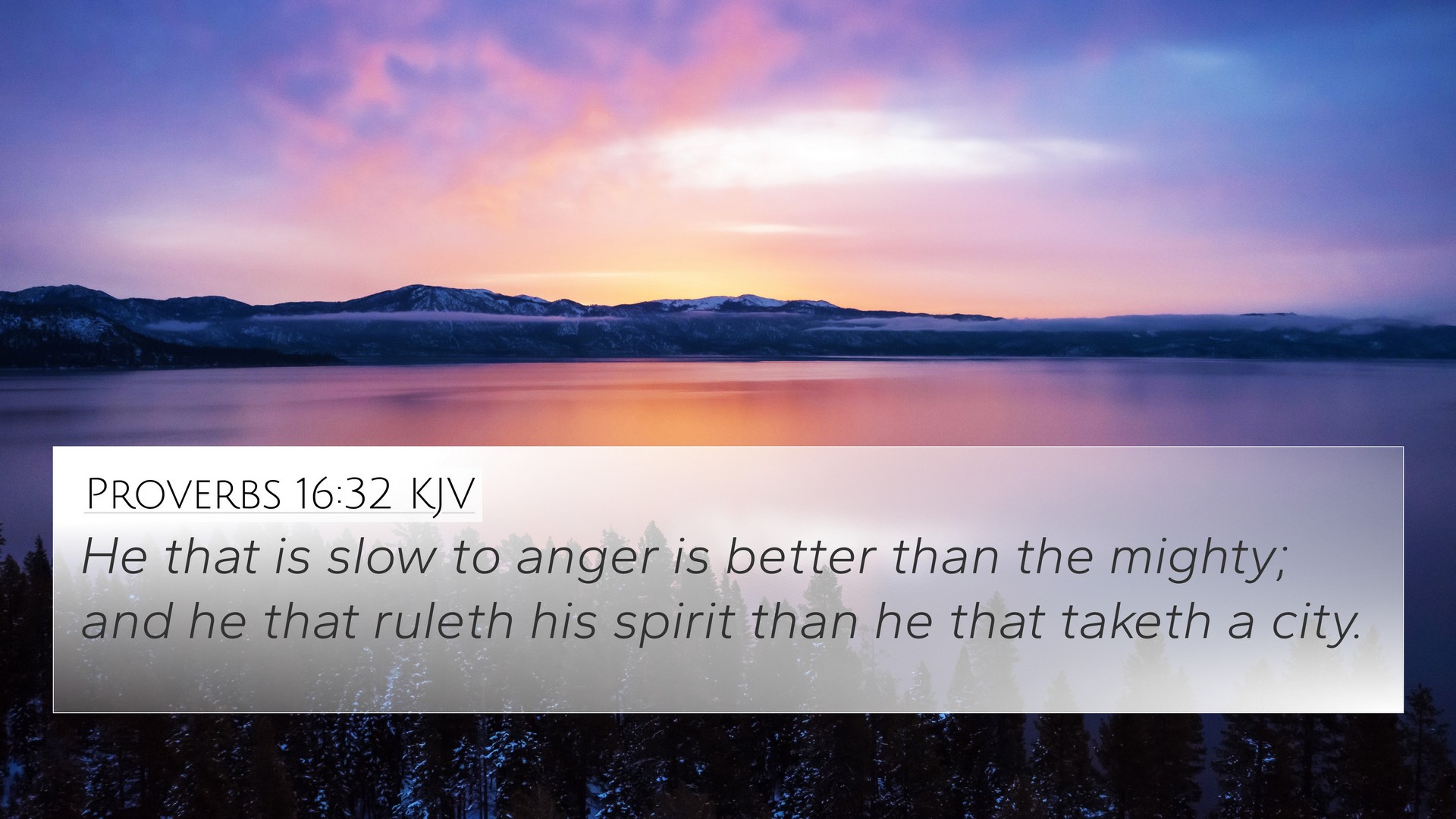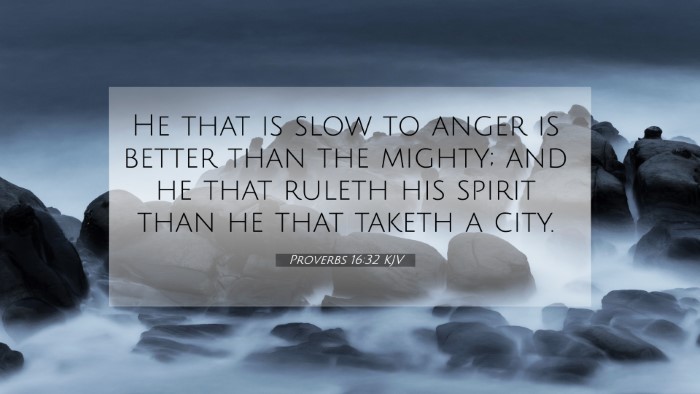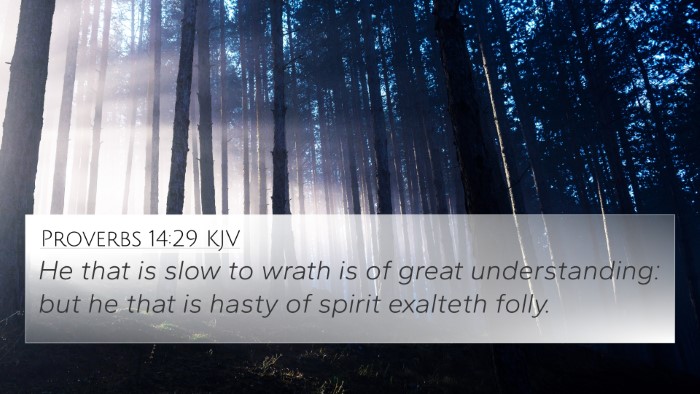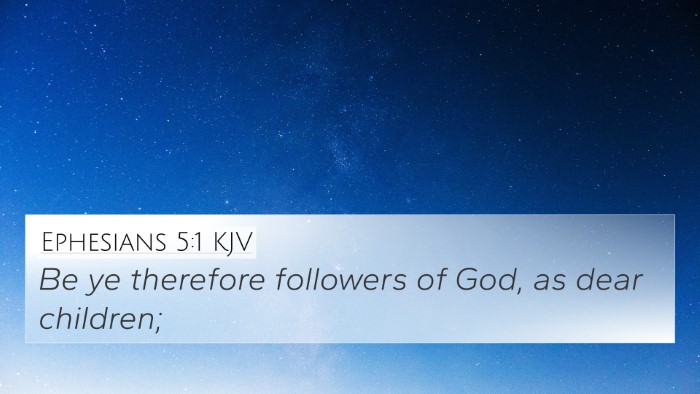Understanding Proverbs 16:32
Proverbs 16:32 says, "He who is slow to anger is better than the mighty, and he who rules his spirit than he who takes a city." This verse emphasizes the value of self-control and patience over physical strength and military prowess.
Summary of Insights
This verse draws attention to the idea that true strength lies not in external power, but in the ability to govern one’s own emotions and reactions. The wise counsel embedded in this proverb suggests that a person who can restrain their anger is to be regarded as superior to a warrior who can conquer cities. This theme resonates through various public domain commentaries, each offering rich interpretations:
-
Matthew Henry:
Henry notes that a person's ability to control their temperament is essential for true wisdom and leadership. He highlights the contrast between external military accomplishments and internal moral fortitude. The implications suggest that peaceable wisdom triumphs over brute force.
-
Albert Barnes:
Barnes elaborates on the phrase "slow to anger," likening it to a person who weighs the consequences of their reactions. He emphasizes that patience fosters wisdom, thereby enabling individuals to respond to challenges thoughtfully rather than impulsively.
-
Adam Clarke:
Clarke comments on the virtue of self-control, suggesting that the ability to dominate one’s spirit signifies a greater triumph than that achieved on the battlefield. He correlates this spiritual victory with a mature understanding of life's complexities.
Bible Verse Cross-References
This verse can be cross-referenced with several other scriptures that enrich its meaning:
- James 1:19: "So then, my beloved brethren, let every man be swift to hear, slow to speak, slow to wrath."
- Proverbs 19:11: "The discretion of a man makes him slow to anger, and his glory is to overlook a transgression."
- Galatians 5:22-23: "But the fruit of the Spirit is love, joy, peace, patience, kindness, goodness, faithfulness, gentleness, self-control."
- Ecclesiastes 7:9: "Do not hasten in your spirit to be angry, for anger rests in the bosom of fools."
- Colossians 3:8: "But now you yourselves are to put off all these: anger, wrath, malice, blasphemy, and filthy language out of your mouth."
- Proverbs 14:29: "He who is slow to wrath has great understanding, but he who is impulsive exalts folly."
- Proverbs 25:28: "Whoever has no rule over his own spirit is like a city broken down, without walls."
Thematic Connections and Analysis
The overarching theme of self-control and maturity in handling emotions connects numerous scriptures, creating an inter-Biblical dialogue. The value placed on these characteristics highlights the biblical principle that spiritual strength is foundational to both personal growth and societal wellbeing.
Exploring the Value of Patience
Patience is once again identified as a crucial trait across the Biblical narrative. Here are some tools for exploring enhanced Bible study:
- Tools for Bible Cross-Referencing: Utilize a Bible concordance for identifying relevant verses.
- Cross-Reference Bible Study: Apply cross-referencing methods to deepen understanding.
- Bible Reference Resources: Use study guides and commentaries to explore themes.
- Identifying Connections: Look for parallels in the Old and New Testament that reinforce the priorities of patience and self-control.
Conclusion
Proverbs 16:32 serves as a powerful reminder that strength is not solely measured by physical accomplishments but more importantly by one’s ability to exercise self-control and patience. Engaging with the surrounding biblical texts through cross-references enriches our understanding of this profound wisdom.
In doing so, readers can develop a more holistic approach to scriptural study, finding thematic connections that echo throughout the Bible, while gaining insights into characteristics that align with Godly wisdom.












